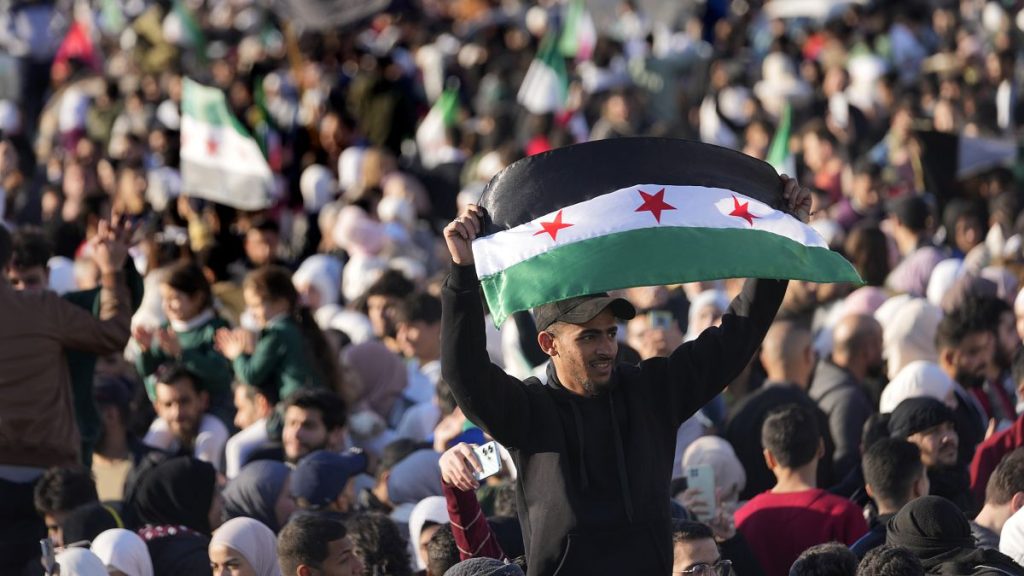The political landscape of Syria is undergoing a dramatic reshaping following the ousting of President Bashar al-Assad and the rise of a new administration, largely influenced by the former insurgent group Hayat Tahrir al-Sham (HTS). This transition has been marked by both diplomatic overtures and underlying tensions, both within Syria and with its neighboring countries. The arrest of two of Assad’s relatives in Beirut airport, allegedly carrying forged passports believed to have been produced within the Syrian embassy, has sparked a diplomatic row between Lebanon and Syria. The Syrian embassy in Lebanon promptly suspended its consular services, further escalating the tensions between the two nations. This incident underscores the complex relationship between the two countries, particularly given Lebanon’s past role as a haven for those fleeing the Syrian conflict.
Adding to this complexity is the repatriation of Syrian nationals from Lebanon. Lebanese authorities handed over dozens of Syrians, including former military officers, to the new Syrian administration after they were apprehended for illegally entering Lebanon. This action highlights the shifting dynamics in the region, with Lebanon now seemingly cooperating with the HTS-led government. While this could be interpreted as a gesture of normalization, it also raises concerns about the potential fate of these individuals upon their return to Syria, given the ongoing political instability and human rights concerns. The UK-based Syrian Observatory for Human Rights, corroborated by Lebanese judicial officials, confirmed this repatriation, adding weight to the evolving political narrative in the region.
The nascent Syrian administration, under HTS leader Ahmad al-Sharaa, has made efforts to project an image of stability and moderation, aiming to assuage fears both domestically and internationally about potential reprisals against Assad loyalists or the imposition of strict Islamic law. This effort at reassuring the international community is crucial for the new administration to gain legitimacy and attract much-needed aid and investment for rebuilding the war-torn nation. However, despite these reassurances, underlying tensions persist. Sporadic clashes between HTS-led security forces and pro-Assad armed groups continue to erupt, indicating unresolved conflicts and the potential for further violence.
Despite these ongoing challenges, several regional powers have moved swiftly to engage with the new Syrian leadership. Delegations from Libya and Bahrain made official visits to Damascus, signaling a willingness to normalize relations with the HTS-led government. This diplomatic engagement is likely driven by a combination of factors, including the desire to stabilize the region, counter Iranian influence, and potentially secure economic opportunities. The recognition by these regional players could bolster the legitimacy of the new administration, but it also carries the risk of alienating other international actors who remain hesitant to engage with a government with roots in an extremist group.
The actions of the new security forces, however, paint a more complex picture. While engagement with some regional powers is progressing, the internal security situation remains volatile. The new security forces have been conducting raids targeting former Assad officials and setting up checkpoints in areas predominantly populated by Alawites, the religious minority group to which Assad belongs. These actions raise concerns about potential discrimination and persecution, contradicting the image of moderation the HTS leadership is attempting to project. These actions underscore the challenges the new government faces in balancing the need for security with respect for human rights and the rule of law.
Further complicating the situation are tensions and clashes in northeastern Syria between Kurdish-led forces and Turkish-backed armed groups. The rise of HTS and the apparent strengthening of Turkey’s influence in Syria are viewed with apprehension by many Kurds. The Syrian Democratic Forces (SDF), a key US ally in the fight against ISIS, are considered by Turkey to be an extension of the Kurdistan Workers’ Party (PKK), which Turkey designates as a terrorist organization. This dynamic creates a volatile situation with potential for escalation, particularly given the ongoing presence of US forces in the region supporting the SDF. The US State Department has confirmed Secretary of State Antony Blinken’s discussions with Turkish Foreign Minister Hakan Fidan regarding these developments, emphasizing the need for a Syrian-led political process that prioritizes human rights and an inclusive government. The US stance emphasizes the importance of a political solution that respects the rights of all Syrian citizens, including the Kurds, potentially creating friction with Turkey’s objectives in the region. The unfolding situation in Syria remains highly complex and fluid, with various actors vying for influence and control, creating a precarious and unpredictable future for the country.














